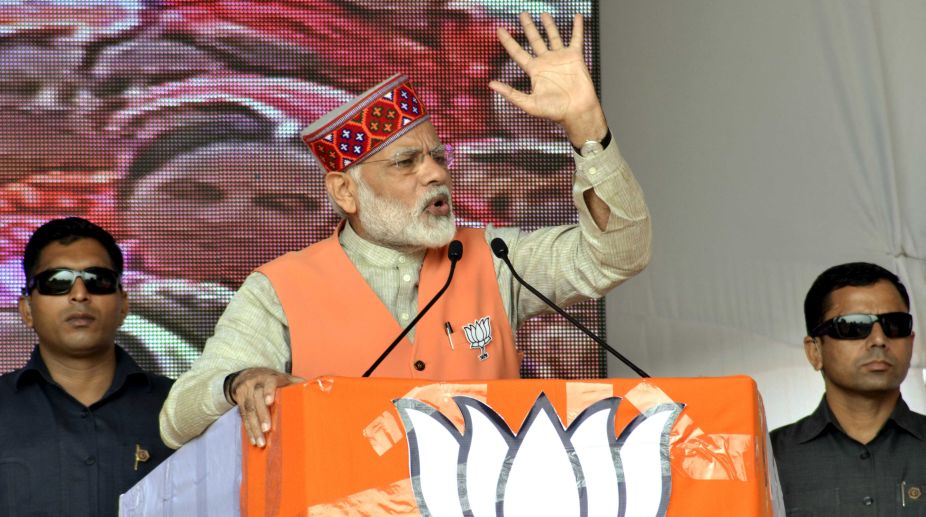Akhilesh Yadav accuses BJP of ruining lives of youth
The SP chief alleged that paper leaks were orchestrated as the government does not want to provide jobs to the youth.

Prime Minister Narendra Modi at a public rally (Photo: SNS)
Traditionally considered a loyal vote-bank of Congress party, the Backward Classes electorate is keeping both Congress and Bharatiya Janata Party (BJP) guessing as to which the voters would swing this time around.
The OBC voters hold a major significance in Kangra politics as over 55 per cent of its population belong to this category. Over the years, the OBC population has played significant role in deciding the fate of Himachal Pradesh politics as 15 assembly seats falls in the district, which generally decides as to which party would form government in the state.
The OBCs constitute about 18 per cent of the state’s population and the community is mostly concentrated in the merged areas, comprising Kangra, Una and parts of Hamirpur. Besides this, Sirmaur has 6 per cent, Solan 4 per cent and Mandi has 3 per cent population of OBCs.
Advertisement
They can tilt the electoral scales in 19 assembly constituencies where they account for 20 per cent to 70 per cent of the electorates. The highest percentage of the OBCs is in Kangra and Nagrota Bagwan (about 70 per cent), followed by Shahpur, Jawali, Paonta-Doon, Nadaun, Jwalamukhi, Chintpurni, Gagret and Santokhgarh.
The other constituencies where the backward classes have a sizeable presence include Jaswan Paragpur, Nurpur, Una, Dharamsala, Sulah and Palampur.
The OBCs are holding grudge against the present government for not providing adequate representation in the state cabinet wherein only one representative (Neeraj Bharti) of the community was inducted. Bharti was appointed as Chief Parliamentary Secretary (CPS) by Virbhadra Singh government.
“In previous governments, atleast one elected representative of the OBC community was inducted in the Cabinet,” senior Congress leader and party candidate from Jawali, Chander Kumar told The Statesman.
It’s a guess work as to whose side the OBC voters would swing in these elections, he said. There is also silent discussion on seeking 27 per cent reservation in government jobs on the lines of the demands by the community members in Gujarat.
The impact of OBC community was seen in the lower HP which saw a prolonged anti-Mandal agitation. The BJP, which was in power at that time, lost the support of OBCs and it was routed in the 1993 assembly elections. Virbhadra Singh, who came to power in 1993 made all effort to appease the community and initially reserved 10 percent jobs for the OBCs.
The Congress government, even, setup a commission to decide their exact quota on the basis of population. It raised the quota from 12 per cent to 15 per cent and finally 18 per cent on the recommendation of the commission.
However, despite all this, it was not able to keep its OBC vote bank intact and a sizeable chunk of backward castes swayed back to the BJP.
This time around, the voters of the community are keeping their cards close to them with both the parties guessing as to which way the communities voters would swing in assembly polls scheduled to be held on 9 November.
“BJP has always worked for the welfare of the community during its regimes and has provided adequate representation in the party organisation and government,” state BJP spokesperson Mahender Dharmani told The Statesman.
Advertisement